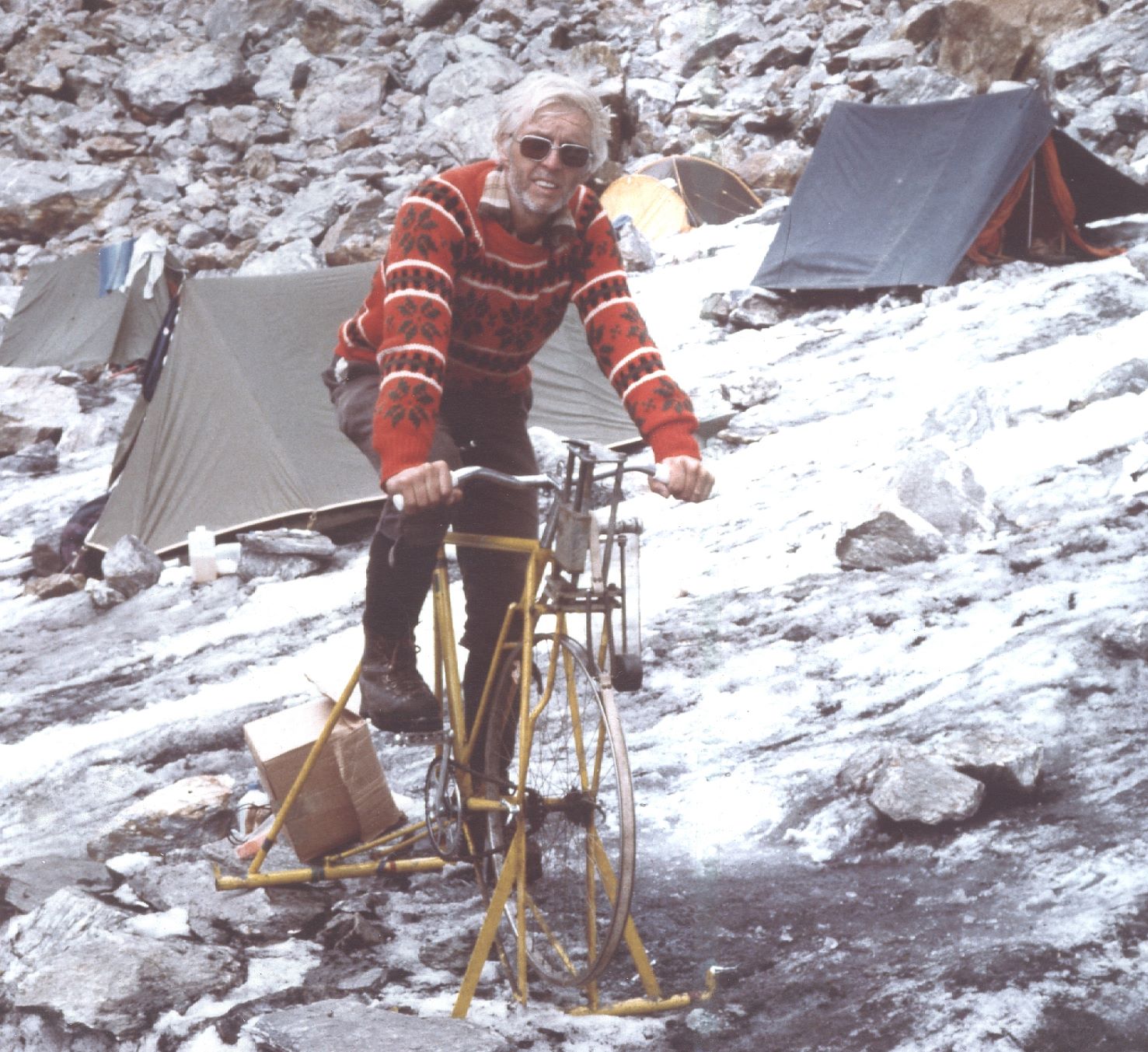
Physiology News Magazine
Obituary: John H Coote
1936 – 2017
Membership
Obituary: John H Coote
1936 – 2017
Membership
Written by Thelma Lovick University of Bristol, UK
https://doi.org/10.36866/pn.110.44

John Coote, who died suddenly and unexpectedly on 27 November 2017, had been there all my scientific life. Others have written about John’s considerable scientific achievements as an autonomic physiologist. Here, I offer a personal perspective on John Coote, the man behind the physiology.
I first became aware of John in the 1970’s when he was a young lecturer at the University of Birmingham. As a new PhD student, I was far too in awe of members of staff to venture to talk to him. But I did quite quickly learn two things about him: the first was his enthusiasm for the outdoors – there were stories about his prowess as a fell runner, climber and general action man. The second was his legendary ability as a dedicated, intensely practical, hands-on autonomic physiologist. This was a skillset he was to retain, develop and importantly to share, for the rest of his life.
John’s love of the outdoors influenced Departmental life. It was usual for the Department to decamp – literally – to summer meetings of The Physiological Society in Oxford or Cambridge. As a student, it was some time before I realised that sleeping in a bed rather than a field, was an option when attending scientific meetings! John managed to marry his science with the outdoor life. His enduring interest in physiology at altitude lead to several expeditions to carry out experiments in places where the pO2 was suitably low. Some exploits were straight out of an action thriller movie – there are tales of chartering helicopters from shady characters encountered in a bar in Kathmandu, of being caught in crossfire between warring guerrilla factions in Peru, or being trapped on a mountain ledge with a climbing partner who tragically died. On another occasion, an expedition to the Alps was interrupted to rush a colleague with acute mountain sickness down the mountainside. Having instigated a life-saving diuresis, the copious urine output was carefully collected in lemonade bottles on the way down. I once asked whether a more controlled experimental environment, with fewer interruptions, might have been better achieved in an altitude chamber. He replied that altitude chambers weren’t actually that comfortable to be in (but see the above) and anyway, compared to the mountains the view was terrible!
John served more than 20 years as Head of the Department of Physiology in Birmingham. Under his stewardship the Department grew considerably and attracted a stream of visitors from abroad, many to his own lab. He went out of his way to welcome them, and regularly invited visitors to share a traditional family Christmas at home with his wife Sue and their three children. He believed in fostering a collegiate environment. He saw the Departmental tea room as an important forum for exchange of news, views and ideas, but sadly he lost the battle to retain this facility. At one time, Departmental Christmas parties were quite a big production. In the days before Health and Safety got the upper hand and indeed for some years after it did, a suite of adjacent teaching labs would suddenly be transformed. Benches were turned into dining tables, hotplates were commandeered from labs to heat often quite elaborate dishes, music was organised, vast quantities of food and wine were drafted in and consumed. A late afternoon highlight was John’s ‘state of the nation’ speech, delivered from atop a wobbly stool. Nobody ever remembered what he said, being far too agog at the prospect of him falling off before he got to the end. He never did.
John was a highly respected member of the international scientific community. He was interested in anything and everything physiological and was always a stimulating presence at scientific meetings. Wherever I went in the world, on learning that I was from Birmingham, people would ask after him. John valued, above all, Universities as bastions of scholarship. He was dismayed at the march of corporatisation, especially within his own institution, and fought hard to bring a voice of reason to the process, never failing to put his head above the parapet if he perceived an injustice.
Despite receiving many scientific honours and holding distinguished positions, John remained an unassuming man. On retiring from the administrative burden of Headship, he was generous with his time and on more than one occasion travelled across the world to help out former members of his lab. In the UK, his collaboration with Andre Ng and Kieran Brack at the University of Leicester on neural control of the heart was particularly fruitful. He showed absolutely no signs of slowing down and was always full of new ideas, opinions and future plans.
John Coote departed his life under full sail. Physiology has lost one of its finest, and many of us have lost a valued and much-respected mentor and friend.
